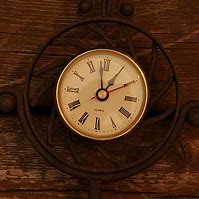
Hot Topics
The Best & Worst of Radio
June 6, 2024
 With apologies to Charles Dickens and the Tale of Two Cities, we’re analyzing the best of times and the worst of times … well, actually decades …
With apologies to Charles Dickens and the Tale of Two Cities, we’re analyzing the best of times and the worst of times … well, actually decades …
If you haven’t seen it yet, I encourage you to scroll through the crosstabs from the recent YouGov study. You likely saw the headlines in trades about the respondents’ attitudes towards radio (more on that in a bit). However, the entire study probed a wide variety of topics and was organized along a best/worst axis.
Let’s tackle radio first. The two questions were: Which of the following decades had the best/worst radio programming. As has been highlighted, the 2020s led the worst category with 27%. Not surprisingly, the “best” question was split along demographic lines. What was more telling was the large number of “not sure” responses. Best had a 27% total, while worst had 36%.
When you compare that with the other entertainment categories of Television, Music and Movies, the “not sure” responses are significantly lower – for both the “best” and “worst” responses.
This can be open to interpretation, but my take on this is that of those four entertainment categories, Radio generates the least amount of passion. Participants in the study had much stronger opinions on TV, Movies and Music. Those “not sure” responses can be seen as a big fat “meh.”
That, my radio brethren, is a major problem. Radio established itself as an emotional medium. We formed bonds with our audience. We had passionate fans. While those may still exist in some places and with some brands, it looks like we are falling off the consumer radar.
I would feel better if the “worst” category generated some real negatives. Love us or hate us – at least there’s an emotion there we can work with.
None of this should come as a surprise. Since the pandemic, we have seen a drop in both PUMM (AQH) and AWTE (TSL) in PPM markets. We have also seen a demise in live and local programming in markets all across the country. This while radio touts its “live and local” presence as one of our strengths.
We have seen PPM technology dictate how we program our stations. Everyone is either “bow tie” or “hourglass” with countless units. Talent talk is kept to a minimum because, of course, talk is a tune-out.
Quick anecdote: When PPM first became currency, we had an Arbitron rep show us an early version of (I believe) Mediabase. He showed how the meters tuned out when the jock started talking. Now, the fact that the break was not very good and that there were very few meters participating did not deter the rep from pushing the idea that talk is bad.
I’m no longer a programmer; I’m a numbers geek. But I recently had a client ask me what I would do if I were allowed to program again. My answer was old school and short:
It’s all about what’s between the records.
One last point: getting people to give us more occasions to increase our TSL and hence our AQH is a great tactic. But the strategy needs to be getting the audience to give a (insert pejorative here).
-Steve Allan, Programming Research Consultant
Comments